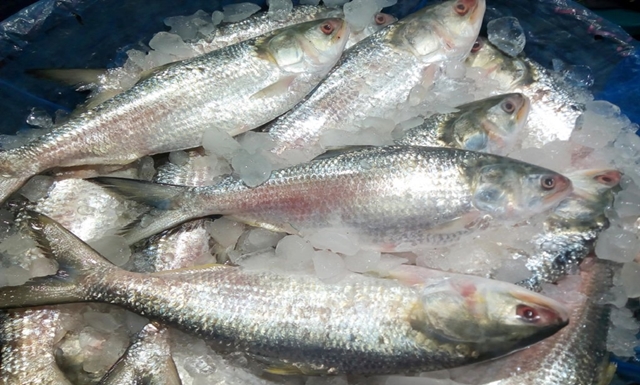The commerce ministry gave the go-ahead on Wednesday following the request of an exporter, the ministry’s spokesperson Abdul Latif Bokshi said to media.
As hilsa export is banned in Bangladesh, the government took the decision in light of the festival, he said.
Hilsa has been ruling the hearts of the Bengalis for generations. The high demand has led to over-fishing and the catch has been decreasing steadily and alarmingly over the past decade.
In 2011-2012 fiscal, hilsa export to India fetched Bangladesh Tk 3 billion.
But on Aug 1, 2012, the government banned the export of hilsa and other species of fish following local business leaders’ call to control fish prices. The ban on all fish except hilsa was lifted on Sept 23 of that year.
During her visit in 2015, West Bengal Chief Minister Mamata Banerjee urged Prime Minister Sheikh Hasina to lift the ban, but Hasina replied India should ensure a fair share of the Teesta river water by striking a deal first if they wanted hilsa.
In January last year, the then fisheries and livestock minister Narayon Chandra Chanda Chanda said the government would lift the ban on hilsa export to ‘stop smuggling’.
Though the ban is in effect, hilsa fish were being smuggled out of the country, leading to a huge loss in taxes, he had said.
Large hilsa fish are smuggled out of the country and are thus rarely available in the domestic market, he had argued.
Hilsa fish make up nearly 11 percent of fish produced in Bangladesh. The fish also contributes 1 percent to the country’s GDP.
Nearly 75 percent of world hilsa production occurs in Bangladesh. The fish provides direct and indirect employment to 2 million people.
The patent, design and trademark department named hilsa fish a ‘geographical indication product’ in 2017.

